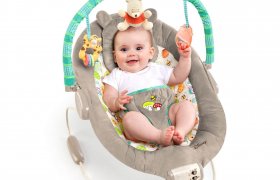How to Cope with the “Empty Nest” Syndrome

It’s always difficult when a child leaves their home to live their own life. From the worrying about where they will go next to the saddening realization that they are no longer sleeping in the room down the hall, us parents are the ones who end up suffering the most. It’s quite normal to be ridden by nostalgia or even melancholy when you watch your child drive away from home after having had packed everything they needed for the next stage of their life.
The hoodie you used to argue over when you would find it tossed on the sofa instead of being put in its place is suddenly no longer on the backrest of the couch, the sink no longer gains any sort of makeup stains, and you find yourself surrounded by a different sort of peace rather than the one you gained when your child would go over to a friend’s for a sleepover or party.
However, your child moving out doesn’t need to be such a depressing moment of your life, and if you don’t feel like it’s such a big deal nor that it affects you very much, then that’s great!
If you do begin to feel a little lost, though, you might be experiencing something known as the “Empty Nest” syndrome.
 What is the Empty Nest syndrome?
What is the Empty Nest syndrome?
If we turn to Wikipedia for help, the Empty Nest syndrome is defined as
→”a feeling of grief and loneliness parents may feel when their children leave home for the first time, such as to live on their own or to attend a college or university “
Fear not though, an empty nest is not necessarily such a bad thing and we’re here to help you to both cope with the newly installed loneliness and prepare yourself for the change.
Signs, Symptoms & What To Do
It’s important to take note of the signs that arise and the symptoms you’re experiencing when dealing with Empty Nest syndrome, in order to properly address the root of the issues. Sure, the child’s absence might seem like the main problem, but depending on what you feel, that may not be the only issue.
1. Sudden excess of free time
With your child out of the house, you no longer have to stress about scheduling meetings with the rest of their school sports team’s parents, or how to fit in your schedule a car ride to a concert on a busy Thursday evening.
At first, the sudden decrease of activity will seem odd, but with several responsibilities no longer occupying so much time and causing so much stress, you will find that the newly acquired free time can be used to your advantage and for your own well-being!
You can now take a nap in the middle of the day without having to worry if your child finished all of their school assignments or if they might need your help with them and you are no longer affected by any sleeping or eating patterns they have, so you can alter your routine however you wish to!
You could also consider going out in the extra spare time, seeing a movie, taking a class or course to discover new skills or improve already existing ones and you could even pick up a hobby to fill up your day!
2. Anxious times
You suddenly don’t know what your child is doing anymore, whether they are taking care of themselves or not, if they are managing well on their own or otherwise. It can be quite overwhelming to no longer be aware of how they’re doing and whether they’re fine or not but it shouldn’t scare you. For at least eighteen years they’ve learned how the world works and you’ve taught them how to take care of themselves and become independent and now it’s time they use everything you’ve shown to them to be an adult themselves.
To ease your anxiety about their well-being, you could always message them to check up on them and keep in touch, or agree on a calling routine together so neither of you feels pressured to always make the first move or have to wait on the other to say hi. You can even plan visits to catch up with them every now and then! As long as you don’t suffocate them by constantly requiring an update of some sort it should all be fine!
3. Relationship tension
With extracurricular activities schedules gone and teens no longer coming and going out of your house with sleepovers or parties and with the amount of new spare time, you’re not the only one who has to adapt to the sudden changes, but your partner as well. While raising your child(ren), it’s normal to focus more on them and their upbringing and neglect your life partner without even intending on doing that. They could be going through the same emotional distress as you are, or they could be taking it all better or worse and reacting accordingly. Certain is, you’re in this as a team and you should be looking after each other as well as realizing that perhaps you haven’t given each other the right amount of attention before.
Make new plans with your partner, be those for an evening out or for a new hobby for both of you to take up. Enjoy the nostalgia-filled moments where you recall all those good memories you’ve built together, look through photo albums and reminisce and acknowledge everything you feel. After all, bottling up your emotions won’t do any of you any good. You’ll see that getting close to them again will not only prove to be good for you but for them as well and your relationship altogether will improve.
Something else that could help you cope with the changes is reaching out to someone else who has gone through similar experiences. A friend whose children are also leaving the nest could provide great advice and support and could help get your mind off of everything by spending time together.
Just keep in mind that if you don’t seem to be able to manage your feelings even after a while, there is no shame in asking for a professional’s help.







